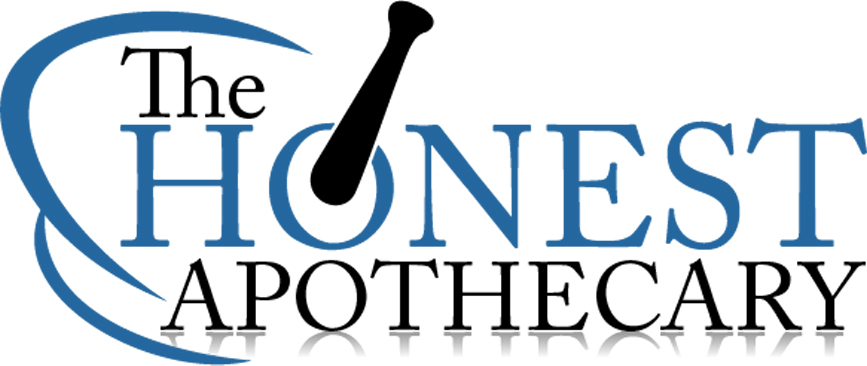In a previous blog post on the subject of career skills for pharmacists, I mentioned a quote that has far-reaching implications for those looking to manage their careers more effectively. The quote was by the famous motivational speaker Earl Nightingale (1921 – 1989) who said “Jobs are owned by the company, you own your career.” This quote epitomizes much of what I tried to communicate to the students as they cycled through my site for what was called an Advanced Community Pharmacy rotation in their PharmD program. We worked hard cramming in drug mechanisms of action, patient consulting, drug interactions and other related topics. But we also talked about careers. I wanted the students I worked with to have a sense of control over their future as a pharmacist. They had made a big investment of time and money. They were far too valuable to limit themselves to some anemic job description handed to them on their first day in the working world. Maybe pharmacists should think seriously about the Jay-Z lyric, “I’m not a businessman; I’m a business, man.”
WHAT IS NETWORKING?
Pharmacists: you’re a business. Really you are. That’s simply another way to understanding the concept of “owning your own career.” And just as a business without any customers will fail, so you also need a steady flow of “customers.” What I’m talking about is networking, and in this article I want to commend the practice of networking to pharmacists.
Now, the concept of networking is often misunderstood or (in my opinion) misrepresented. Networking is not simply the process of seeing how many names you can collect in your address book. Networking is not about paying to belong to every association related to your profession. Networking is not about how many followers you can get on Twitter, likes on Facebook or connections on LinkedIn. Personally I have been rather dissatisfied with most definitions of networking that are bandied about. One of the better definitions of networking is offered by social media strategist Joshua Waldman, who simply describes your “network” as “people who you can easily call and invite to coffee or have a phone conversation with.” To put it in modern terms, your network is your “peeps.”
My personal definition of networking is “the active process of growing your circle of professional acquaintances with whom you keep up some degree of regular conversation.” They are that group of individuals who have, in a sense, bought into you and you have bought into them. They are your “customers” so to speak (though you are not actually selling to them). Networking, in some respects, is about marketing yourself. Hopefully these definitions and analogies help clarify what networking is all about.
WHEN TO START
Networking is about actively building relationships with others, related to your career and interests. And the time to begin networking is now. Waiting until you are unemployed to start reaching out and networking is risky at best. This is because true networking, building relationships with others, takes time and effort. It isn’t necessarily hard work, but it is work nonetheless (hence the word “working” in “networking” is no accident). Networking requires some discipline. It often demands that we move outside our comfort zone a little. And, to say it yet again, it takes time. Actually the best time to start networking is yesterday. But if you didn’t start yesterday, today will have to do. It was Mark Twain who said it best, “the secret to getting ahead is getting started.”
WHERE TO NETWORK
 Where should you network? The simple answer, in my opinion, is everywhere. Your network might include a waiter or waitress at a local restaurant whom a conversation revealed certain mutual interests or goals. Your network might include a friend of a friend whom you contacted after discovering several overlapping career objectives. Just sitting back and waiting for contacts to come to you isn’t networking. The “working” part of networking means reaching out, engaging in conversations, following up with phone calls and emails where appropriate. But undoubtedly the most popular places to network today are online. I recommend all pharmacists have a completed LinkedIn profile. Additionally, it is very easy to setup a Twitter account. It is beyond the scope of this article to go into the details about how to use these resources most effectively. But suffice it to say that you want to engage in conversations on these networks, and after spending some time contributing to the content, you can seek to interact with individuals through tweets (via Twitter) and email messages (via LinkedIn). In addition to these large social networks, I recommend pharmacists strongly consider joining & interacting on some career-specific websites like RxEconsult, AmavenRx, or Pharmacist Society. Finally, don’t forget the blogs! There are many pharmacist-written blogs out there (umm, like this one!) where you can leave comments and begin to interact with others who are like-minded. The list could go on. The point is that everywhere you go, both in “person” and “online” offers opportunities to meet people who share mutual interests and goals which you can connect with and grow your network.
Where should you network? The simple answer, in my opinion, is everywhere. Your network might include a waiter or waitress at a local restaurant whom a conversation revealed certain mutual interests or goals. Your network might include a friend of a friend whom you contacted after discovering several overlapping career objectives. Just sitting back and waiting for contacts to come to you isn’t networking. The “working” part of networking means reaching out, engaging in conversations, following up with phone calls and emails where appropriate. But undoubtedly the most popular places to network today are online. I recommend all pharmacists have a completed LinkedIn profile. Additionally, it is very easy to setup a Twitter account. It is beyond the scope of this article to go into the details about how to use these resources most effectively. But suffice it to say that you want to engage in conversations on these networks, and after spending some time contributing to the content, you can seek to interact with individuals through tweets (via Twitter) and email messages (via LinkedIn). In addition to these large social networks, I recommend pharmacists strongly consider joining & interacting on some career-specific websites like RxEconsult, AmavenRx, or Pharmacist Society. Finally, don’t forget the blogs! There are many pharmacist-written blogs out there (umm, like this one!) where you can leave comments and begin to interact with others who are like-minded. The list could go on. The point is that everywhere you go, both in “person” and “online” offers opportunities to meet people who share mutual interests and goals which you can connect with and grow your network.
PRACTICAL ADVICE
Let me end this article on networking for pharmacists with some practical advice for those to whom this concept is rather new. First, show an interest in others and how you can help them. At the very least, make your initial interactions to be about THEM and not about YOU. Take a feather from the hat of the friendship expert Dale Carnegie who once wrote “You can make more friends in two months by becoming interested in other people than you can in two years by trying to get other people interested in you.” Second, start immediately to keep your contacts organized. I’m not going to tell you how to do this. I have a system, and maybe I will share it in a future article. But the point is not which system you use, but that you use SOME system to keep your network organized so as to be useful when you are looking to advance your career. Third, you cannot network anonymously. Now, you can interact on any of these sites under a pseudo name for fun. There’s nothing wrong with that. But that’s not networking. Networking, by definition, really requires you to be you. Finally, keep it fresh. It is of no use to go through all the “working” of networking only to let your contacts go stale through neglect. You need to keep the conversations alive. Share information with them which you think they may be interested in (like this blog post, maybe?). Tell them what is going on in your life. Ask them questions which are appropriate to their areas of expertise.
CONCLUSION
Networking isn’t complicated, but it isn’t automatic either. It is the deliberate process of growing your list of contacts with similar interests or goals. Begin today, if not sooner. And remember to focus first on your contribution to others before beginning to ask for advice, career insights or assistance for yourself.
Start one aspect of your network now! Follow me on Twitter:
©Jason Poquette and The Honest Apothecary. Unauthorized use and/or duplication of this material without express and written permission from this blog’s author and/or owner is strictly prohibited. Excerpts and links may be used, provided that full and clear credit is given to Jason Poquette and The Honest Apothecary with appropriate and specific direction to the original content.
Career Advice Networking for Pharmacists Social Media
Last modified: April 17, 2023
















